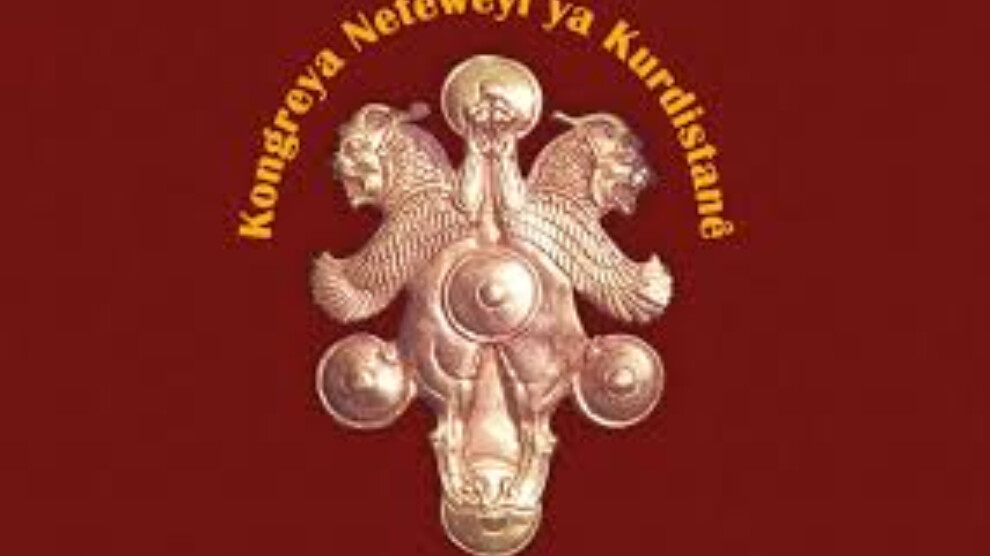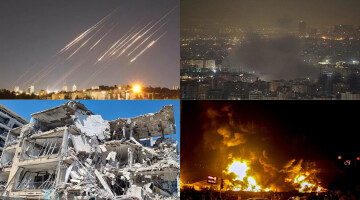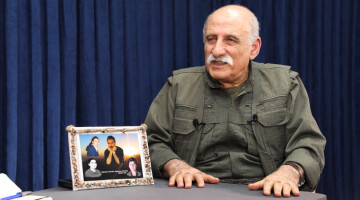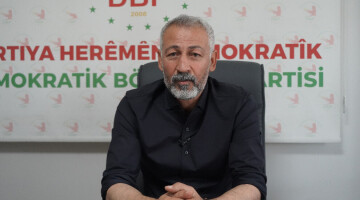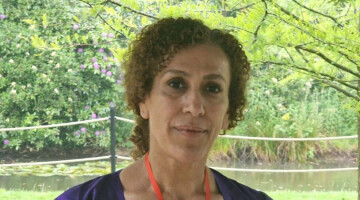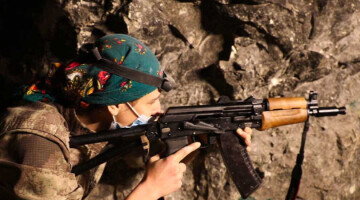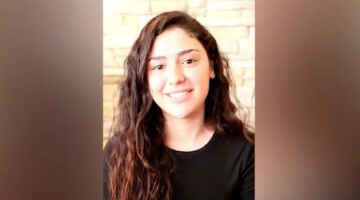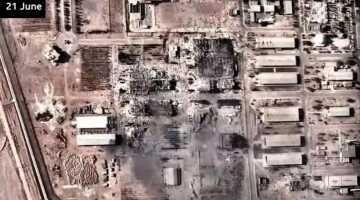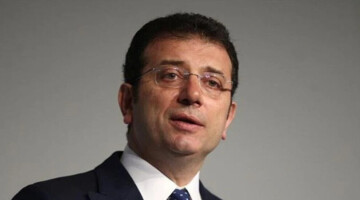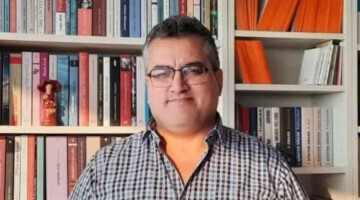The Kurdistan National Congress (KNK) sent an open letter to Ahmed Aboul Gheit, Secretary-General of the League of Arab States, Mohammed Shia’ Al Sudani, Prime Minister of Republic of Iraq, Bashar al-Assad, President of the Syrian Arab Republic, António Guterres, Secretary-General of the United Nations, Joseph R. Biden, President of the United States, Marija Pejčinović Burić, Secretary General of the Council of Europe (CoE), Ursula von der Leyen, President of the European Commission, Jens Stoltenberg, Secretary-General, North Atlantic Treaty Organization (NATO).
The letter reads as follows:
"Dear Excellencies,
In 2011, the Arab Spring protests and uprisings spread to Iraq and Syria. The Turkish state, which wanted to take advantage of this situation, took action to attempt to expand Turkey’s borders to those of Misak-ı Milli (also known as Ahd-ı Milli), a group of resolutions adopted by the Ottoman Parliament 104 years ago which claimed all of Kurdistan, including northern Iraq and northern Syria, to be within the borders of a Turkish state. As a first step to promote Neo-Ottomanism, the Turkish AKP-MHP regime launched a campaign of mass murder and occupation against the Kurdish people. In 2014, the Turkish state established relations with terrorist jihadist gangs in Iraq and Syria and utilised them to pursue this objective.
Turkish President and AKP leader Recep Tayyip Erdoğan have often stated that he intends to occupy all of these areas, which include the area from Aleppo to Mosul, Sulaymaniyah, Kirkuk, Sinjar and Behdinan, within the borders of Misak-ı Milli. Devlet Bahçeli, the leader of the ultra-nationalist MHP party, a prominent actor in the Turkish deep state and the AKP’s junior coalition partner, has been openly referring to Kirkuk and Mosul as Turkey’s 82nd and 83rd provinces for years. Together with Erdoğan, he is attempting to realise this expansionist goal by provoking the peoples of Kirkuk and Mosul into fighting one another to create chaos, arming Turkmen and other groups.
In 2014, during the rise of the Islamic State (ISIS) terrorist group, the Turkish state tried to invade Kobanê using its proxy gangs, and defeated by the heroic resistance of the Kurdish people. Unfortunately, using its military might and proxy militias in concert with manipulative diplomacy on the international stage, Erdoğan was eventually able to invade and occupy Afrin in 2018 and Ras al-Ain (Serêkaniyê) and Tal Abyad (Girê Spî) in 2019, causing great bloodshed and displacement of civilians.
In parallel, the Turkish state has expanded its occupation of Kurdistan by increasing the number of military bases and other instillations in Southern Kurdistan, which is a federal unit under the sovereignty of the Iraqi state, trying to justify these hostile actions using the pretense of “fighting against the Kurdistan Workers’ Party (PKK)”. In Southern Kurdistan, as a recent VOA report shows, Turkish troops are now boldly entering 30 kilometers into the region with thousands of soldiers and 300 tanks, carrying out identity checks on Iraqi citizens in and around Dohuk. This blatant disregard for international law represents a violation of international treaties and is not only a great threat against us Kurds but also another major element of instability in the Middle East.
The Erdoğan-Bahçeli regime wants to implement the Misak-ı Milli at all costs. To this end, the Turkish state has intensified their diplomatic and military efforts since the beginning of 2024, and they have now pacified the Iraqi government through these efforts. The achievement of the Misak-ı Milli strategy in Kurdistan will lead to expanded occupation of Iraq and Syria, intensified regional conflict, and the displacement and migration of millions of people, and thus concerns the entire Middle East and the international community.
We, the undersigned Kurdish political parties and civil society organisations, call on the governments of Iraq and Syria, the Arab League, the UN, which is responsible for the implementation of international legal norms, the EC, NATO, of which the Turkish state is a member, and the EU and the US, which have strategic relations with the Turkish state, to take urgent and decisive action to stop this occupation.
Signatories:
- Commission of Foreign Relations of the Kurdistan National Congress (KNK)
- Patriotic Union of Kurdistan (PUK), Kurdistan Region of Iraq (KRI)
- The Democratic Union Party (PYD), Syria
- The Gorran Movement (GORAN), KRI
- Democratic Socialist Party of Kurdistan (HSDK), KRI
- Kurdistan Islamic Party (PIK), North Kurdistan/Turkey
- The European Kurdish Democratic Societies Congress (KCDK-E)
- Communist Party of Kurdistan, KRI
- The Kurdish Women’s Movement in Europe (TJK-E)
- Federation of the Ezidis of Kurdistan (NAV YEK)
- Federation of Alawis of Kurdistan (FEDA)
- The European Syriac Union (ESU)
- Party of the Syriac Union in Syria
- The Kurdistan Free Life Party (PJAK), Iran/East Kurdistan
- The Kurdistan Toilers’ Party, KRI
- Syrian Kurdish Democratic Party (P.D.K.S)
- Kurdish Democratic Left Party-Syria (P.Ç.D.K-S)
- Kurdish Left Party-Syria (PÇK-S)
- Kurdish Democratic Party – Syria (PDK-S – El Partî)
- The Kawa Movement, North Kurdistan/Turkey
- Kurdistan Liberation Party (PRK), KRI
- The Green Party of Kurdistan-European Section
- Kurdish Institute Brussels
- Kurdish Institute Germany
- Kurdish Institute Stockholm
- Yarsan Democratic Organization, KRI/Europe
- The Free National Union Party (PYNA), Syria
- The Modern Movement of Kurdistan – Syria (T.N.K.S)
- The Exile Council of Sinjar/Şengal (MŞD)
- Kurdish Diwekhani in Europé
- Kurdistan Justice Group, KRI
- Kurdistan Independence Alliance, Iran
- The Betnahrin People’s Congress (Syriac)
- The Komala Party of Iranian Kurdistan (KOMELE), East Kurdistan/Iran
- Kurdistan Democratic Communities Union (KCK)
- Kurdistan Freedom Party (PAK), East Kurdistan/Iran
- Democratic Change Party of Mesopotamia, Rojava/Syria
- The Kurdistan Green Party – Rojava/Syria
- The Kurdistan Communist Party (KKP), North Kurdistan/Turkey
- The Kurdistan Workers Party (PKK)
- Plattform of the Kurds of Central Anatolia (PKAN-E)
- Plattform of the Horamans, KRI/Europe
- The Kurdish Unity Party in Syria (PYK-S El Wehdê)
- The Kurdistan Peopel’s Freedom Movement, KRI
- Union of Syrian Êzîdî’s
- The Kurdistan Teachers Union (YMK), Europe
- The Kurdistan National Democratic Union (YNDK), KRI
On behalf of the Joint Diplomacy Committee of Kurdish and Syriac Political Parties and Organisations, the Commission on Foreign Relations of the Kurdistan National Congress (KNK)"

